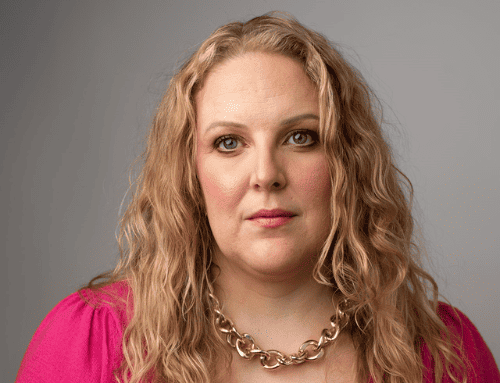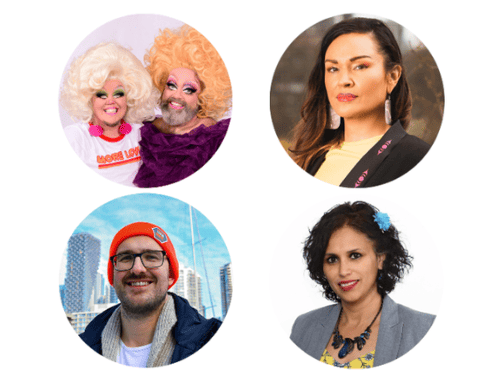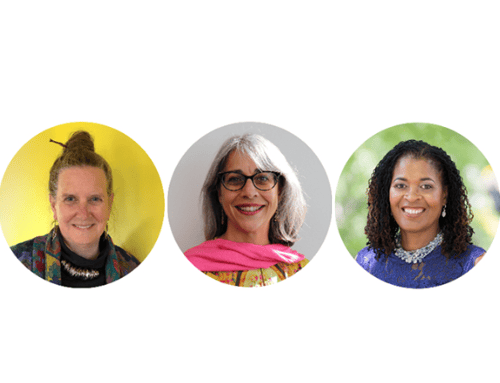This past fall I had the honour and privilege to be a part of ground-breaking new training at the University of Toronto. Through the Athletics Department, I conducted 30 workshops with hundreds of varsity athletes, intramural teams, and Athletics and Kinesiology department staff. The training was comprehensive – with the aim of preventing sexual violence. The University committed to training every varsity athlete.
The workshops went extremely smoothly, and I’m pleased to share that what I saw filled me with hope and optimism. . It’s important to note that everyone has a part to play, but men and boys of course have a special role because they frequently have more power and privilege.
The unique thing about these workshops is that I worked with athletes across the spectrum of gender identities: I worked with not only men, but also women, trans, and non-binary athletes. Everyone got to step up and see how they can be part of changing the paradigms that lead to gender-based violence.
Workshops focus heavily on the root causes of gender-based violence—of which there are many. When we address male trauma as one of the root causes of men’s violence, and encourage seeking resources and supports as not only a key step in healing, but also as a primary prevention approach to ending violence, participants are ready to get onboard.
For many it may be the first time anyone has acknowledged their wound, and their need to heal. When we discuss ways that men’s violence against women intersects with their own lived experiences – especially when that involves sons who saw their fathers using violence – a vital connection is made for many in the room. Those who have not experienced this from their fathers sit in acknowledgement of the experiences of their friends.
It’s important that the cyclical nature of violence is discussed, so that those who have experienced it can interrupt the pattern, and not perpetrate against future partners. Workshops also discuss the ways in which men and boys learn entitlement to women’s bodies and rape culture, through friends and family, as well as social learning mechanisms such as pornography. One of the most important ways of ending violence against women is to give men and boys alternatives to anger: emotional intelligence. The lack of permission to express feelings and cry in our culture is a significant root cause of the pandemic of violence against women. This is discussed in the context of unhealthy gender norms and expectations (AKA ‘toxic masculinity’).
The second half of the workshops move into talking about ways of ending violence against women and girls and everyone else impacted by toxic masculinity. Together we translate the principles of eradicating toxic gender norms that lead to violence against women and girls into key skills they can use to work toward ending gender-based violence.
We help those in the workshop to:
- Identify their feelings in difficult situations so that they can communicate without anger;
- Understand the importance of consent, how to practice it, and most importantly, how to overcome the emotional blockages in the way of asking;
- Intervene using emotional intelligence in a safe way;
- Be allies by listening to survivors;
- Understand the toxicity that bro culture (men supporting other men to objectify women, deny violence, and not believe survivors) spreads;
- Encourage their peers and other men and boys to work towards addressing gender inequality and ending violence against women and girls.
It’s not the evaluations done, or the answers that I get from participants that most convince me these young folks have got this, it’s the energy in the room both during and after the workshop. The material is heavy, but they are in it. I know they’re in it because I can read the emotion in their faces. I see sorrow, disbelief, anger, inspiration, creativity, hope, and a heartening coming through. For many I see a softening in their stance and body posture as we weave through the workshop. It in turn fuels me, and we have a delightful recipe to move young folks a step further than just caring about the issues. and into taking concrete action on violence against women and girls.
While there were brilliant moments through all of the workshops, there were also uncomfortable moments. Not everyone is going to agree with all of the approaches and ideas. What makes the workshops for athletes unique is the space that is created to be authentic and transparent.
Through innovative facilitation that considers different perspectives, we can shift rape culture, homophobia, toxic masculinity, and bro culture. Drawing out the nuances of how we can advance gender equality, and shift out of harmful norms simultaneously, is crucial and exiting! We can move the conversation forward so everyone comes out a winner.
Learn More:
Engaging Men and Boys in Gender Equality: Q&A with Kevin Vowles
When it Comes to Toxic Masculinity, We All Lose
What Youth Have Taught Me About Teaching Consent: Kevin Vowles
Take Action:
Sign up for our e-newsletter to have our latest stories and resources sent to your inbox.
Follow us on Facebook and Twitter to join a national conversation about empowering girls.






